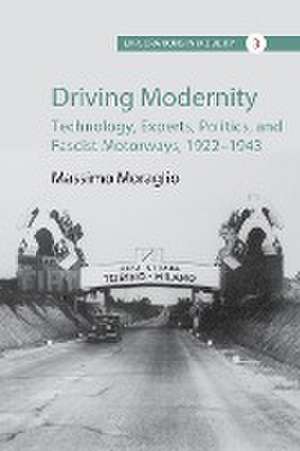Driving Modernity: Explorations in Mobility
Autor Massimo Moraglioen Limba Engleză Paperback – 14 iul 2023
| Toate formatele și edițiile | Preț | Express |
|---|---|---|
| Paperback (1) | 151.98 lei 6-8 săpt. | |
| BERGHAHN BOOKS – 14 iul 2023 | 151.98 lei 6-8 săpt. | |
| Hardback (1) | 747.81 lei 6-8 săpt. | |
| BERGHAHN BOOKS – mar 2017 | 747.81 lei 6-8 săpt. |
Preț: 151.98 lei
Nou
Puncte Express: 228
Preț estimativ în valută:
29.08€ • 30.44$ • 24.20£
29.08€ • 30.44$ • 24.20£
Carte tipărită la comandă
Livrare economică 31 martie-14 aprilie
Preluare comenzi: 021 569.72.76
Specificații
ISBN-13: 9781800739390
ISBN-10: 1800739397
Pagini: 210
Dimensiuni: 152 x 229 x 12 mm
Greutate: 0.29 kg
Editura: BERGHAHN BOOKS
Seria Explorations in Mobility
ISBN-10: 1800739397
Pagini: 210
Dimensiuni: 152 x 229 x 12 mm
Greutate: 0.29 kg
Editura: BERGHAHN BOOKS
Seria Explorations in Mobility
Notă biografică
Massimo Moraglio is a senior researcher at the Technische Universität Berlin. He has received an EU Marie Sklodowska Curie IEF fellowship and is editor-in-chief of the Journal of Transport History. He has coedited the volumes The Organization of Transport: A History of Users, Industry, and Public Policy (2015) and Peripheral Flows: A Historical Perspective on Mobilities between Cores and Fringes (2016).
Descriere
Descriere de la o altă ediție sau format:
Driving Modernity recounts the history of the first Italian motorway, which-alongside railways and aviation-Italian authorities hoped would spread an ideology of technological nationalism.
Driving Modernity recounts the history of the first Italian motorway, which-alongside railways and aviation-Italian authorities hoped would spread an ideology of technological nationalism.


















